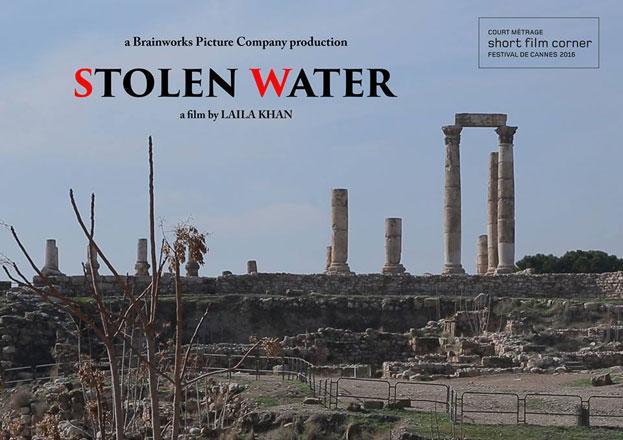Read the full article at the Jordan Times here
By Hind Joucka
AMMAN — Is water a human right or a commodity? This is the question British filmmaker Laila Khan set out to answer in her latest documentary, “Stolen Water”.
Khan’s short documentary sheds light on water theft in Jordan and the measures that authorities are taking to curb violations on the water network.
“I wanted to give my audience two sides of the story and remain neutral,” she told The Jordan Times. “I wanted to know how people are stealing water and why, and what the government or authorities are doing [about it].”
In a campaign against water theft launched in 2013, authorities have dealt with around 23,000 violations against water mains and sealed 758 illegal wells.
“I found it interesting, as I never heard about anyone stealing water. I was curious to know, how does one steal water, a basic need and a human right that we should all be entitled to?” the filmmaker said.
Water theft is recognised as an economic crime under articles 3 and 4 of the Economic Crime Law. Currently, courts are looking into more than 1,000 cases of violations involving water resources and networks, according to the Ministry of Water and Irrigation.
Showcasing both sides of the story, the short film follows authorities from the ministry to several police busts, and interviews people who have been caught stealing water as well as exposing illegal installations created underground in order to siphon water from a main pipeline.
However, getting in touch with people who are illegally digging wells in order to steal freshwater has not been an easy task, according to the director.
“I think for a film of this nature there would obviously be reservations from both sides. As a filmmaker, it was important for me to document the truth and give the audience two points of view,” she said.
“People who were stealing water didn’t want their identities to be revealed for obvious reasons, but we assured the locals that we would not show their faces when filming them.”
Water Minister Hazem Nasser and the ministrys spokesperson, Omar Salameh, also appear in the short documentary.
In addition to highlighting the ongoing challenges the country is facing due to the scarcity of its water resources, the documentary also focuses on the impact the influx of Syrian refugees has had on the nation, according to the director.
“I believed it was my duty as a filmmaker to raise awareness about such an important global issue,” Khan said.
The filmmaker started researching the project three years ago with Canadian-Jordanian journalist Jamal Halaby.
Jordan is one of the poorest countries in terms of water, as per capita water availability in the Kingdom is 88 per cent below the international water poverty line of 1,000 cubic metres annually, according to official figures.
“Stolen Water” will be screened on October 19 at the Columbia Global Centre in Amman, followed by a discussion with Khan and Halaby about the essential role of water in human life and what can be done to make water more accessible and affordable for all.
Khan’s short film “6 Cup Chai” was screened at the Cannes Short Film Corner in 2014, and won a Venus de Badalona award for Best Values at the 40th edition of the FILMETS Badalona Film Festival in Spain.
Khan has two features films currently in development.
